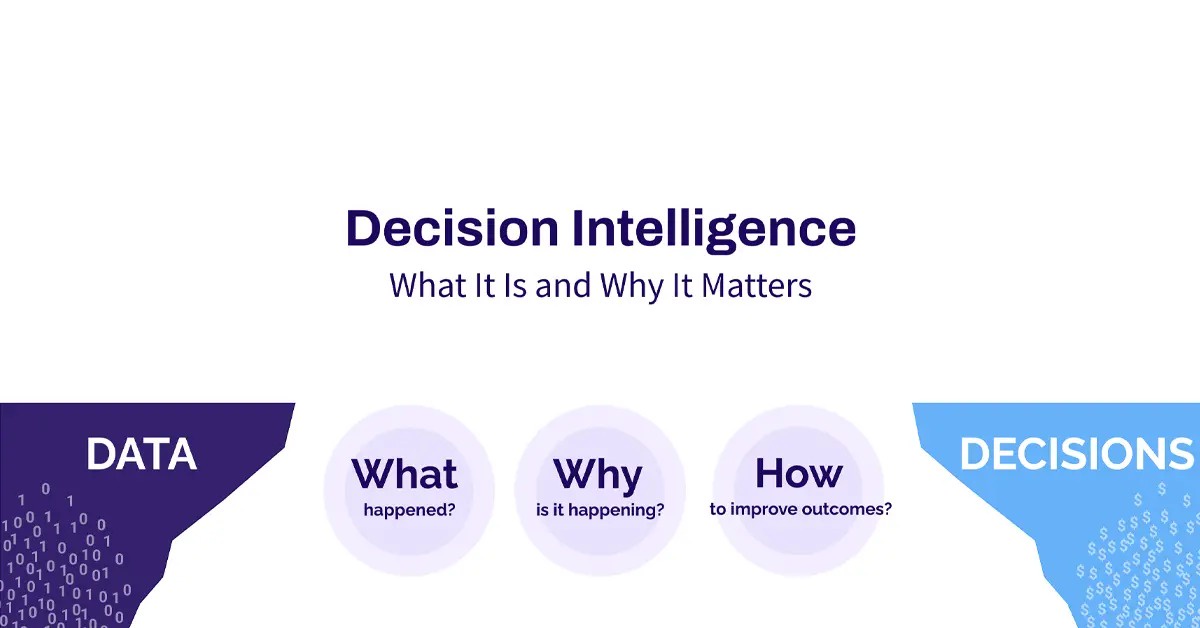In the rapidly evolving landscape of today's digital world, businesses are inundated with vast amounts of data. The advent of Big Data has revolutionized the way organizations operate, offering unparalleled insights into customer behavior, market trends, and internal processes. However, with great data comes great complexity, and the key to making sense of it all lies in the realm of Decision Intelligence.
Understanding the Big Data Challenge
Big Data, characterized by the volume, velocity, and variety of information, presents a formidable challenge for decision-makers. Traditional methods of analysis often fall short in the face of such complexity. The sheer scale of data generated daily can overwhelm organizations, leading to decision paralysis or, worse, uninformed choices.
This is where Decision Intelligence (DI) steps in as a beacon of clarity. DI is a multidisciplinary approach that combines data science, analytics, and artificial intelligence to empower decision-makers with the tools they need to navigate the intricacies of Big Data successfully.
The Marriage of Data and Decision-Making
At its core, Decision Intelligence leverages advanced analytics and machine learning algorithms to transform raw data into actionable insights. It goes beyond mere data analysis by integrating human expertise, business context, and ethical considerations into the decision-making process. In the context of Big Data, this means distilling the noise into meaningful patterns, trends, and correlations that guide strategic choices.
One of the primary advantages of Decision Intelligence in the era of Big Data is its ability to handle the diverse nature of information. Traditional analytics may struggle with unstructured data, but DI excels at processing and understanding a wide range of data types, from text and images to sensor readings and social media interactions.

Smarter Choices Through Predictive Modeling
Decision Intelligence takes decision-making a step further by incorporating predictive modeling. By leveraging historical data and sophisticated algorithms, DI enables organizations to anticipate future trends, customer behaviors, and potential challenges. This foresight is invaluable in a business landscape where agility and adaptability are critical for survival.
For instance, in retail, Decision Intelligence can analyze past purchasing patterns, external economic factors, and even weather data to predict consumer demand accurately. This allows businesses to optimize inventory, streamline supply chains, and ensure they meet customer expectations in real time.
Navigating Uncertainty with Decision Intelligence
The business environment is inherently uncertain, with factors such as market fluctuations, geopolitical events, and unexpected crises constantly impacting decision-making. Decision Intelligence acts as a compass in these turbulent waters, providing decision-makers with the insights needed to navigate uncertainty successfully.
Through scenario analysis and risk modeling, DI allows organizations to assess the potential outcomes of different decisions in various situations. This not only minimizes the impact of unforeseen events but also empowers businesses to proactively shape their strategies based on a thorough understanding of potential risks and rewards.
The Road Ahead: Integrating Decision Intelligence into Organizational Culture
As we delve deeper into the era of Big Data, the integration of Decision Intelligence into the organizational culture becomes imperative. It's not just about implementing cutting-edge technologies but fostering a mindset that values data-informed decision-making.
Leaders must champion a culture that encourages collaboration between data scientists, analysts, and decision-makers. Training programs can equip employees at all levels with the skills to leverage Decision Intelligence tools effectively. Moreover, organizations need to establish clear ethical guidelines for the use of data in decision-making processes, ensuring transparency and accountability.
In the era of Big Data, where information is both an asset and a challenge, Decision Intelligence emerges as the guiding force for organizations seeking to make smarter choices. By combining the power of advanced analytics, machine learning, and human expertise, DI not only unlocks the potential of Big Data but also transforms it into a strategic advantage.
As businesses continue to navigate the complexities of the digital age, those embracing Decision Intelligence will find themselves not only surviving but thriving in the face of uncertainty. In this dynamic landscape, the ability to turn data into actionable insights is not just a competitive edge—it's the key to sustainable success.


No comments yet